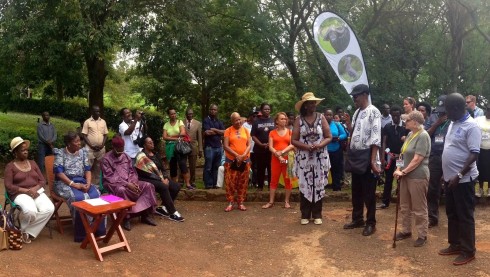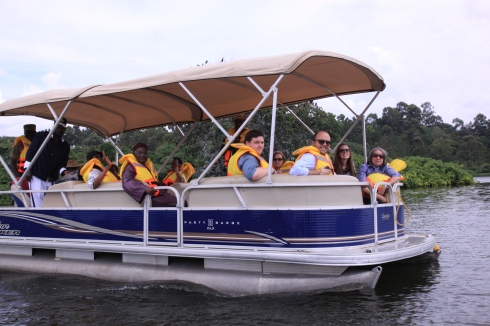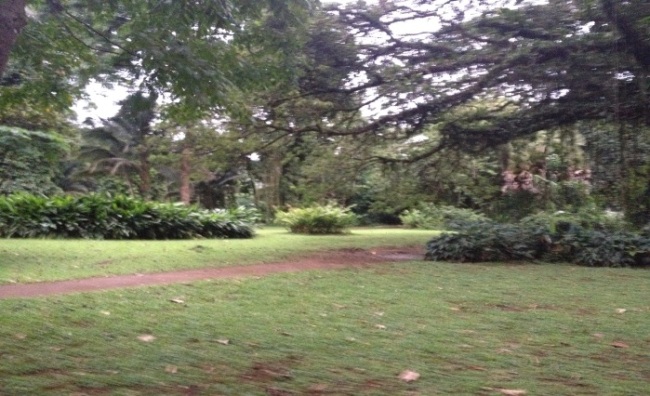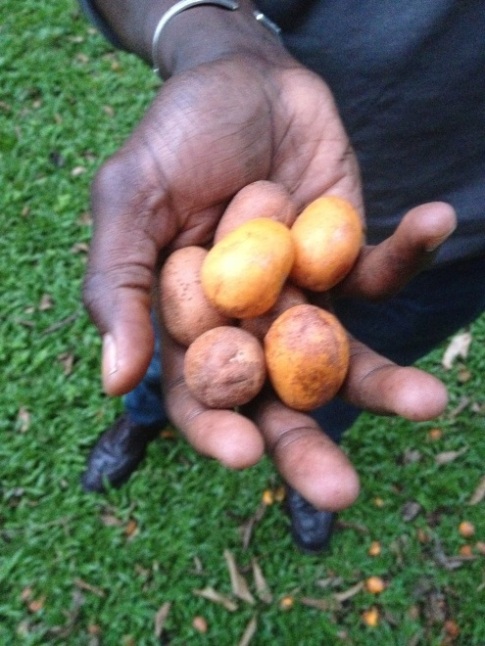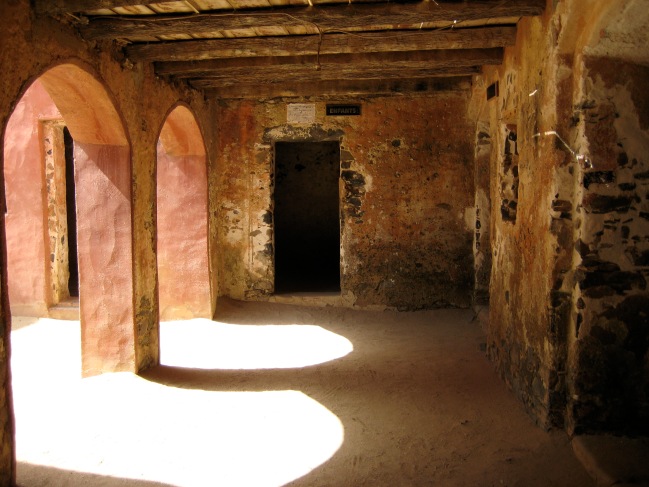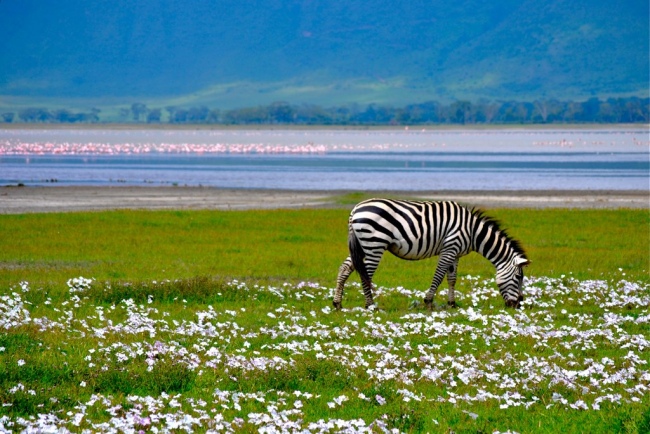The conference room at Elephant Hills Hotel was buzzing with excitement and anticipation as young professionals, students, and industry leaders from across Zimbabwe, Africa, and the U.S. kicked off ATA’s Congress with the Third Annual Young Professionals Program (YPP) Forum on Friday, May 18th, 2012. Breaking past attendance records, over 100 students and young professionals from the tourism and hospitality sector came together to discuss the most pressing issues for youth.
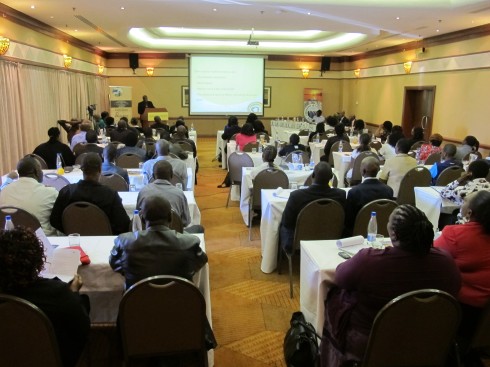
A packed house at the YPP Forum (Photo by: Andrea Papitto).
The tone for the YPP Forum was set by two engaging and knowledgeable moderators from the Zimbabwean tourism industry—Ms. Rumbidzai Mudzengerere, Northern Region Marketing Executive for the Zimbabwe Tourism Authority, and Mr. Hugh Mandizha, Food & Beverage Manager of the A’Zambezi River Lodge in Victoria Falls. Ms. Rumbidzai Mudzengerere lead the delegates in singing the Zimbabwean national anthem.

Moderators Mr. Hugh Mandizha, Food & Beverage Manager, A’Zambezi River Lodge, & Ms. Rumbidzai Mudzengerere, Northern Region Marketing Executive, Zimbabwe Tourism Authority kick off the YPP Forum! (Photo by: Matt Andrea).

YPP Forum delegates sing national anthem (Photo by: Matt Andrea).
Dr. Yohannes Zeleke, ATA Mid-Atlantic Chapter President, welcomed delegates and provided an overview of the mission and work of ATA, highlighting, “when we all work together, we as members of ATA are an instrument for change.”

Dr. Yohannes Zeleke, ATA Mid-Atlantic Chapter President delivers opening remarks on behalf of ATA (Photo by: Matt Andrea).
Ms. Robyn Deutsch, Coordinator for Miracle Corners of the World (MCW) Jacqueline’s Human Rights Corner, gave delegates four key social media takeaways to promote African tourism:
1) Know your ‘subject’ and environment
2) Engage your audience
3) Diversify content
4) Monitor your progress

Ms. Robyn Deutsch, Coordinator, Miracle Corners of the World (MCW) Jacqueline’s Human Rights Corner (Photo by: Martha O’Donovan).
Dr. Thokozile Chitepo, Principal Director of the Ministry of Youth Development, Indigenization and Empowerment of the Republic of Zimbabwe, on behalf of Honorable Minister Saviour Kasukuwere, discussed placing the ethics of sustainability and ecological integrity at heart of African tourism.

Dr. Thokozile Chitepo, Principal Director of the Ministry of Youth Development, Indigenization and Empowerment of the Republic of Zimbabwe (Photo by: Andrea Papitto).
Dr. Chitepo stressed that the youth have the potential to “come up with solutions for the tourism industry.” As a vital part of developing green jobs in the economy, Dr. Chitepo noted that the Ministry of Youth Development, Indigenization and Empowerment “continues to seek and work with other development partners in developing and implementing programs to empower young Zimbabweans and meet mutually related goals. This includes providing youth with entrepreneurial and life skills, supporting youth livelihood projects through the Youth Development Fund as well as creating platforms for youth to participate in sustainable environmentally appropriate jobs.“

YPP Forum Delegates (Photo by: Martha O’Donovan).
Professor Cleopas Njerekai of Midlands State University, Department of Tourism and Hospitality Management, gave delegates a solid background and framework for rural tourism development in Zimbabwe and across Africa. Professor Njerekai illustrated that rural tourism is tourism involving the countryside destination, encompassing local culture, traditions, and industries, as well as outdoor recreational actives and experiences that are staged in rural areas. Contrary to mass tourism, local communities play a significant role in providing the rural tourism product.

Professor Cleopas Njerekai, Lecturer at Midlands State University, Department of Tourism and Hospitality Management (Photo by: Martha O’Donovan).
Ms. Andrea Papitto, Co-Chair of ATA’s Youth Advisory Committee and Vice President of Thinking Forward Media, provided a rural tourism success story from her work with the Reseau de Development Turistique Rural (RDTR) in the Souss Maasa Draa Region of Southern Morocco. RDTR’s keys to success were:
1) Organizational leadership
2) Engagement of rural tourism stakeholders
3) Public private partnerships
4) Commitment to develop rural tourism

YPP Forum Delegates (Photo by: Andrea Papitto)
Mr. Dumisani Nyoni; Director of Zimele Institute, Organization of Rural Associations for Progress (ORAP), and Member of the Earth Charter Initiative Council; challenged delegates to reflect on 3 R’s:
1) Rethink: what tourism and travel should be
2) Redesign: the sector
3) Return: What is the return we want from the redesign? What are our social return and our environmental return?

YPP Forum Delegates (Photo by: Andrea Papitto).
Then, Mr. Givemore Chidzidzi, Chief Operating Officer, Zimbabwe Tourism Authority, welcomed us all to Zimbabwe, “a song which, once heard is never forgotten; a mood to suit any soul, any time; a spell to bind those who know her,” followed by an overview of Zimbabwe’s World of Wonders:
1) Our Wonderful People & Culture
2) Rich History & Heritage
3) Great Zimbabwe “The Grand Medieval Palace”
4) The Majestic Victoria Falls
5) Pristine Wildlife & Nature
6) The Mystique of the Eastern Highlands
7) The Mythical Kariba & The Mighty Zambezi

Mr. Givemore Chidzidzi, Chief Operating Officer, Zimbabwe Tourism Authority (Photo by: Andrea Papitto).

ZImbabwe, A World of Wonders (Photo by: Andrea Papitto).
“The forum presented the perfect platform for young people to express themselves, share ideas and interact on a social level. This was a huge success looking at the number of attendees at the events. The ideas that came up show that the future of Zimbabwe’s tourism sector looks promising and that Africa is willing to go the extra mile in terms of development of infrastructure and technology to meet the world trends. As for me, I am thrilled by the fact that Zimbabwe hosted the third session of ATA and is working to establish a chapter in our country to aid in the efforts to promote Zimbabwe as the preferred destination of choice,” said Ms. Mudzengerere.
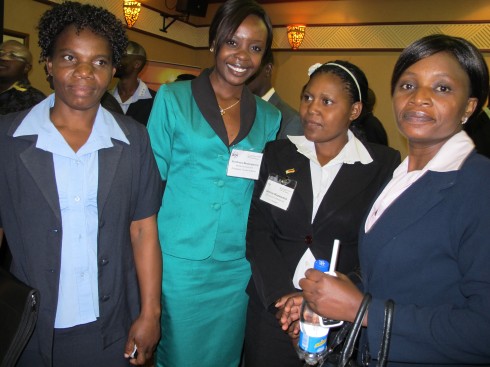
YPP Forum delegates with Moderator Ms. Rumbidzai Mudzengerere, Northern Region Marketing Executive, Zimbabwe Tourism Authority (Photo by: Andrea Papitto).
ATA looks forward to welcoming participants to the Young Professionals Program and to reuniting in 2013! The vibrancy and leadership shown by the Zimbabwean youth and tourism and hospitality industry have paved the way for YPP initiatives for years to come! Ndatenda!

YPP Forum Speakers (L-R), Moderator Mr. Hugh Mandizha, Mr. Dumisani Nyoni, Dr. Yohannes Zeleke, Dr. Thokozile Chitepo, Mr. Givemore Chidzidzi, Ms. Andrea Papitto, & Moderator Ms. Rumbidzai Mudzengerere. Not pictured Mr. Cleopas Njerekai & Ms. Robyn Deutsch.
For more information on the ATA’s Young Professionals Program, please visit: http://africatravelassociation.org/about/organization/YPPTableofContents.html
For more photos of the YPP Forum, please visit our Flickr page: http://www.flickr.com/photos/65134942@N06/sets/72157630045245760/
By: Andrea Papitto, Thinking Forward Media; Photos by: Matt Andrea, Martha O’Donovan, and Andrea Papitto
The YPP Forum was made possible by:
Mrs. Tsitsi Yekeye, Product Development Manager, Zimbabwe Tourism Authority (ZTA)
Ms. Pauline Ndlovu, Marketing Manager – MICE, Zimbabwe Tourism Authority (ZTA)
Zimbabwe Tourism Authority (ZTA)
Africa Travel Association (ATA) Headquarters
YPP Planning Committee Members:
Ms. Praise Tanya Mangemba, Mr. Taku Mbofana, Mr. Assan Njie,
Ms. Andrea Papitto, & Mr. Robert Washington


